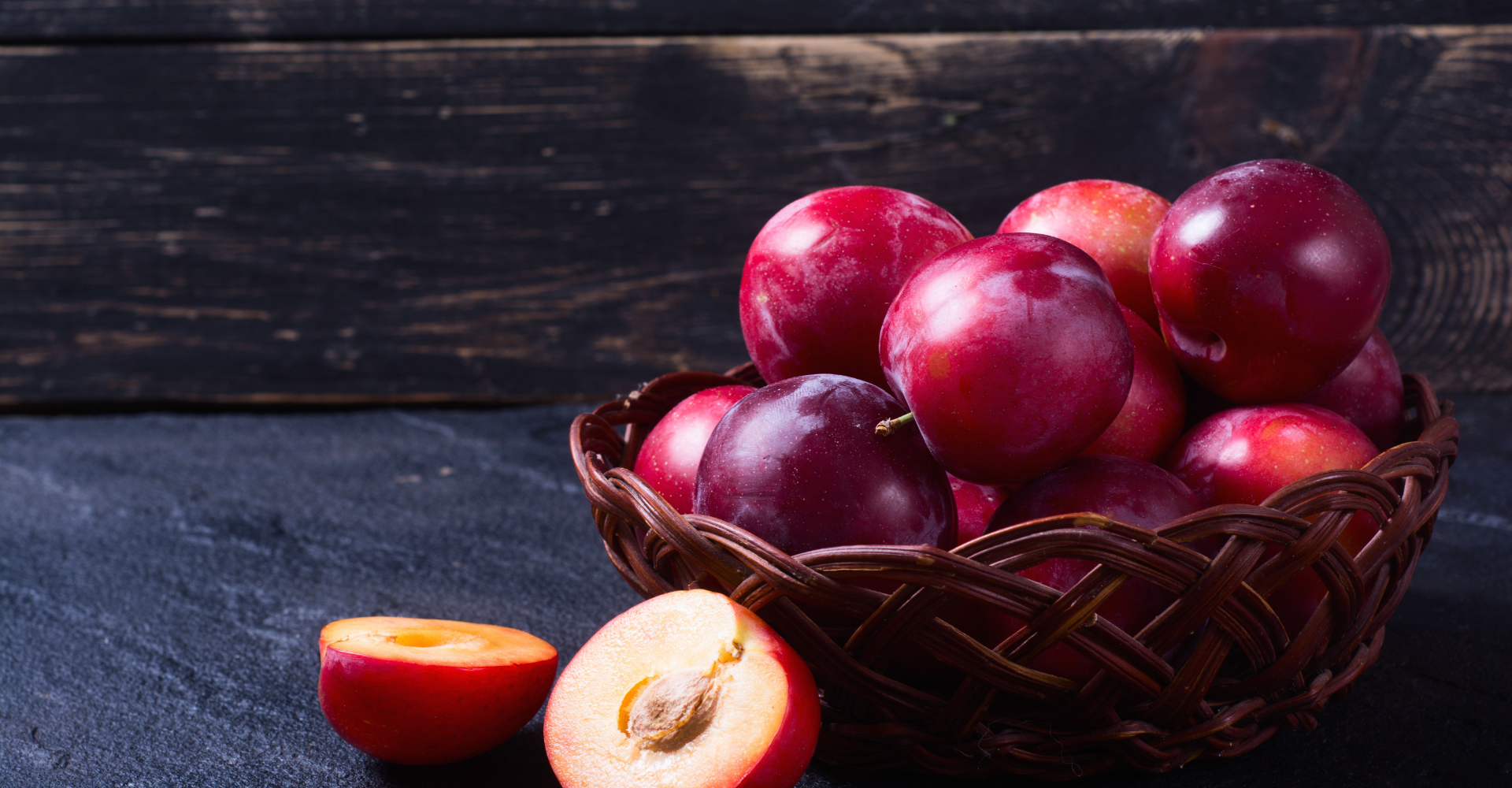
For a better and faster shopping experience, download app
Unkown

10 Surprising Health Benefits of Plums You’ll Want to Know
Plums may be small, but they pack a serious nutritional punch. Juicy, sweet, and slightly tart, plums are not only delicious—they’re full of antioxidants, vitamins, and fiber that make them a true superfruit for daily health. Whether you enjoy them fresh, dried (as prunes), or cooked into sauces and desserts, plums offer a wide range of science-backed health benefits.
Grown widely across India, Europe, and the Americas, plums have been used in traditional remedies for digestion and skin health. But modern research confirms they’re great for much more—from heart protection and blood sugar regulation to bone health and anti-aging. Here are 10 surprising benefits of plums that make them a worthy addition to your daily diet.
1. Packed with Essential Nutrients
One medium-sized plum (66 grams) contains:
- Calories: 30
- Vitamin C: 6.3 mg (10% of daily intake)
- Vitamin A: 227 IU
- Potassium: 104 mg
- Fiber: 1 g
- Antioxidants: Polyphenols, anthocyanins
Why it matters:
Plums are low in calories but rich in vitamin C, fiber, and key antioxidants. They help support immune health, digestion, and skin repair.
2. Supports Digestive Health
Plums and prunes are famous for relieving constipation thanks to their sorbitol (a natural sugar alcohol) and soluble fiber. They add bulk to stools and help maintain regular bowel movements.
Eating just 2–3 prunes or a medium plum daily can help ease bloating and improve overall gut health.
3. Promotes Heart Health
The polyphenols and potassium in plums help lower blood pressure, reduce cholesterol buildup, and protect blood vessels from oxidative damage.
These compounds support better circulation, reduce arterial stiffness, and can lower the risk of heart attacks and strokes.
Regular plum intake has been associated with reduced LDL (bad cholesterol) levels and improved HDL (good cholesterol).
4. Regulates Blood Sugar Levels
Plums have a low glycemic index and are rich in soluble fiber, which helps slow the absorption of sugar in the bloodstream.
Despite their natural sweetness, they don’t cause sudden blood sugar spikes. This makes plums a safe fruit option for diabetics when eaten in moderation.
5. Boosts Immunity
Thanks to their vitamin C content and antioxidant profile, plums support immune defense by enhancing white blood cell function and fighting inflammation.
Vitamin C also accelerates wound healing and helps the body fight infections more efficiently.
6. Improves Skin Health
Plums are rich in vitamin C, vitamin A, and anthocyanins, which promote skin regeneration, even out skin tone, and reduce signs of aging.
Their antioxidants help combat free radical damage caused by UV exposure and pollution, making plums a powerful ally for youthful, glowing skin.
7. Strengthens Bones
Prunes (dried plums) are especially effective in preventing bone loss. They contain nutrients like vitamin K, boron, magnesium, and potassium, which are crucial for bone formation and density.
Research shows that postmenopausal women who consume prunes regularly experience slower bone density loss and improved bone markers.
8. Supports Weight Management
Low in calories and high in water and fiber, plums promote satiety and reduce hunger cravings. They make for a perfect, naturally sweet snack that supports healthy weight loss without empty calories.
Including plums in your snacks or breakfast can help curb sugar cravings and keep you fuller longer.
9. Reduces Inflammation
Plums contain anthocyanins and phenolic compounds, which are known to reduce inflammation throughout the body. Chronic inflammation is a root cause of diseases like arthritis, heart disease, and diabetes.
Adding plums to your diet can help lower inflammatory markers and support long-term health.
10. May Reduce Cancer Risk
Some studies suggest that plum extracts can inhibit the growth of cancer cells, especially in the breast, colon, and liver, while leaving healthy cells unharmed. This effect is attributed to their high antioxidant and polyphenol content.
While more human studies are needed, these findings highlight the protective power of plant-based foods like plums in cancer prevention.
How to Add Plums to Your Diet
Plums are versatile and can be enjoyed in both sweet and savory dishes. Here are some easy ways to eat them daily:
- Fresh: Eat raw as a snack or slice into salads
- Dried (Prunes): Add to oatmeal, smoothies, or trail mix
- Roasted or Grilled: Pair with meat or tofu for a sweet-savory contrast
- Baked: Use in pies, tarts, or compotes
- Jam or Chutney: Make a low-sugar spread for toast or rice dishes
Pro Tip: Choose plums that yield slightly to pressure—firm but ripe. Avoid overly soft or shriveled fruits.
FAQs About Plums
Q1: Can I eat plums every day?
A: Yes! 1–2 fresh plums or a handful of prunes daily is healthy and beneficial for digestion, skin, and immunity.
Q2: Are dried prunes as healthy as fresh plums?
A: Absolutely. While prunes are higher in natural sugar, they are more concentrated in fiber and certain minerals—especially beneficial for bone health and constipation.
Q3: Are plums good for diabetics?
A: Yes, in moderation. Their fiber helps regulate blood sugar, and they have a low glycemic index.
Q4: Do plums help with bloating?
A: Yes. The sorbitol and fiber in plums promote healthy digestion and reduce bloating or constipation.
Q5: Can kids eat plums safely?
A: Definitely. Just remove the pit and cut into small pieces to prevent choking. Prunes are also safe and helpful for kids with constipation.
Final Thoughts
Plums may not get the same spotlight as berries or tropical fruits, but they’re a powerhouse of nutrients and healing compounds. From aiding digestion and improving skin to supporting heart, bone, and immune health, this humble fruit offers more than meets the eye.
Whether you enjoy them fresh or dried, adding plums to your daily diet is a smart, delicious way to support overall wellness. Don’t overlook this seasonal gem—your body (and taste buds) will thank you.










